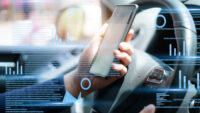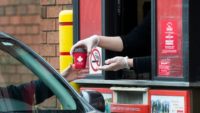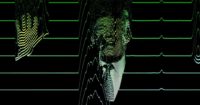Texas has sued insurance provider Allstate, alleging that the firm and its data broker subsidiary used data from apps like GasBuddy, Routely, and Life360 to quietly track drivers and adjust or cancel their policies. Allstate and Arity, a “mobility data and analytics” firm founded by Allstate in 2016, collected “trillions of miles worth of location data” from more than 45 million people, then used that data to adjust rates, according to Texas’ lawsuit. This violates Texas’ Data Privacy and Security Act, which requires “clear notice and informed consent” on how…
Read MoreTag: Tracking
PwC plans to track employees’ location while at work. Is this practice legal in Canada? | CTV News
The COVID-19 pandemic shook up everyday life in many ways, including making work from home more common. As the COVID threat has receded from its pandemic peak, life has largely returned to normal around the world, including in Canada. PricewaterhouseCoopers (PwC) is one of the many employers that are moving towards getting staff to spend more time in the office. After the global accounting giant recently announced plans to enforce its back-to-office policy(opens in a new tab) by tracking employees in the U.K., one employment lawyer explains the situation with…
Read MoreWas Tim Hortons’ App Improperly Tracking Users? Privacy Commissioner To Decide | Global News
Canada’s privacy commissioner will report Wednesday on the results of an investigation into whether the Tim Hortons mobile ordering app was improperly tracking users’ whereabouts without their explicit consent. The 23-month-long investigation came after National Post reporter James McLeod obtained data showing the Tim Hortons app on his phone had tracked his location more than 2,700 times in less than five months. Read full story here: Was Tim Hortons’ App Improperly Tracking Users? Privacy Commissioner To Decide | Global News
Read MoreClearview AI Aims To Put Almost Every Human In Facial Recognition Database | ARS Technica
The controversial facial recognition company Clearview AI reportedly told investors that it aims to collect 100 billion photos—supposedly enough to ensure that almost every human will be in its database. “Clearview AI is telling investors it is on track to have 100 billion facial photos in its database within a year, enough to ensure ‘almost everyone in the world will be identifiable,’ according to a financial presentation from December obtained by The Washington Post,” the Post reported today. There are an estimated 7.9 billion people on the planet. Read full…
Read MoreFederal Agencies Use Facial Recognition From Private Companies, But Almost Nobody Is Keeping Track | The Verge
A new report from the Government Accountability Office (GAO) has revealed near-total lack of accountability from federal agencies using facial recognition built by private companies, like Clearview AI. Of the 14 federal agencies that said they used privately built facial recognition for criminal investigations, only Immigration and Customs Enforcement was in the process of implementing a list of approved facial recognition vendors and a log sheet for the technology’s use. Read full story here: Federal Agencies Use Facial Recognition From Private Companies, But Almost Nobody Is Keeping Track | The…
Read MoreTim Hortons App Under Investigation Over Data Concerns | CTV News
GATINEAU, QUE. — The Tim Hortons mobile ordering app is being investigated by the Office of the Privacy Commissioner of Canada and provincial agencies in Quebec, B.C. and Alberta. The joint investigation was prompted by concerns raised in media reports about how the app may be collecting and using data about people’s movements as they go about their daily activities. It will examine whether the fast food restaurant chain owned by Restaurant Brands International Inc. is in compliance with the Personal Information Protection and Electronic Documents Act, Canada’s federal private…
Read MoreACLU Outlines Privacy Concerns For Contact Tracing Tech | Engadget
As Google and Apple prepare to team up on surveillance tech to help track the spread of Covid-19, privacy watchdogs at the American Civil Liberties Union (ACLU) are urging the government and tech companies to take a tougher stance on privacy. The ACLU published a lengthy white paper outlining privacy concerns they say need to be taken into account in order for contact tracing tech to be effective. Apple and Google’s proposal would use bluetooth data to detect phone owners’ potential exposure to people who have tested positive for Covid-19.…
Read MoreApple And Google Are Building Coronavirus Tracking Tech Into iOS And Android | CNET
The two companies are working together, representing most of the phones used around the world. Two of the tech industry’s biggest players are working together to fight the coronavirus, announcing a new set of tools that could come to a majority of smartphones around the world. The new technology, outlined in white papers published by Apple and Google Friday, relies on Bluetooth wireless radio technology to help phones communicate with one another, ultimately warning people about people they’d come in contact with who are infected with the coronavirus. Apple and Google plan to…
Read MoreHow Apps Secretly Spy On You With Third-Party Trackers | Digital Trends
The moment you install an app, it begins scavenging and pestering you for your data. It requests permissions to tap into your phone’s internals, asks you to register a handful of personal information — you know the drill. However, no matter how frugal and vigilant you are at each step, there’s still one way most apps end up covertly mining your data. Every app comes packaged with a range of what are technically called Software Development Kits (SDK). To understand these better, think of an app as a Lego house…
Read MoreOpinion – How To Track President Trump | The New York Times
If you own a mobile phone, its every move is logged and tracked by dozens of companies. No one is beyond the reach of this constant digital surveillance. Not even the president of the United States. The Times Privacy Project obtained a dataset with more than 50 billion location pings from the phones of more than 12 million people in this country. It was a random sample from 2016 and 2017, but it took only minutes — with assistance from publicly available information — for us to deanonymize location data…
Read More






